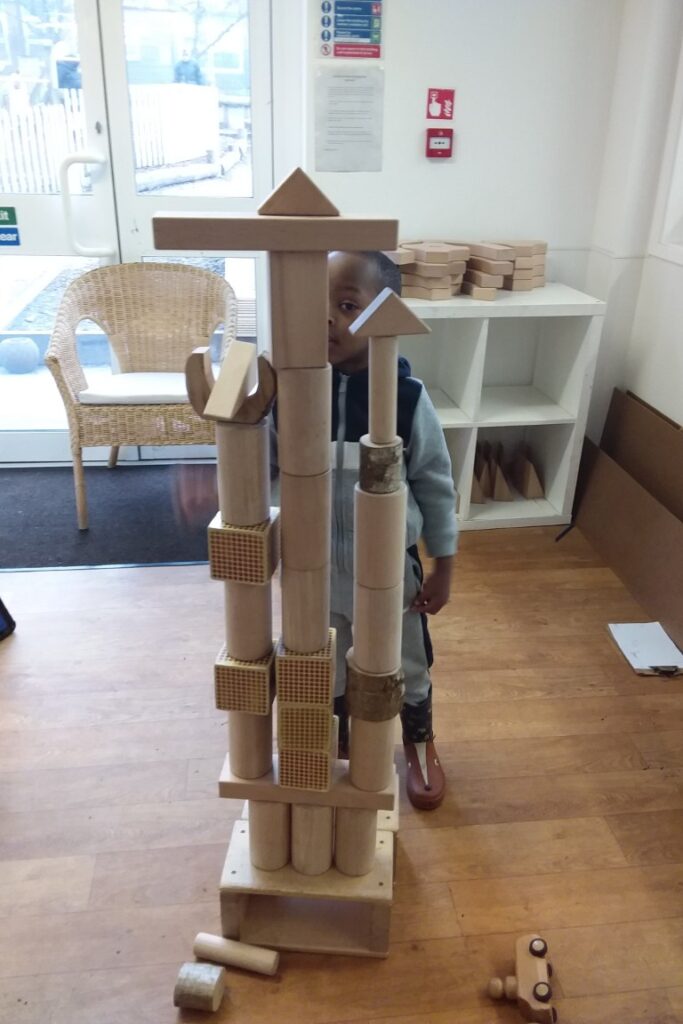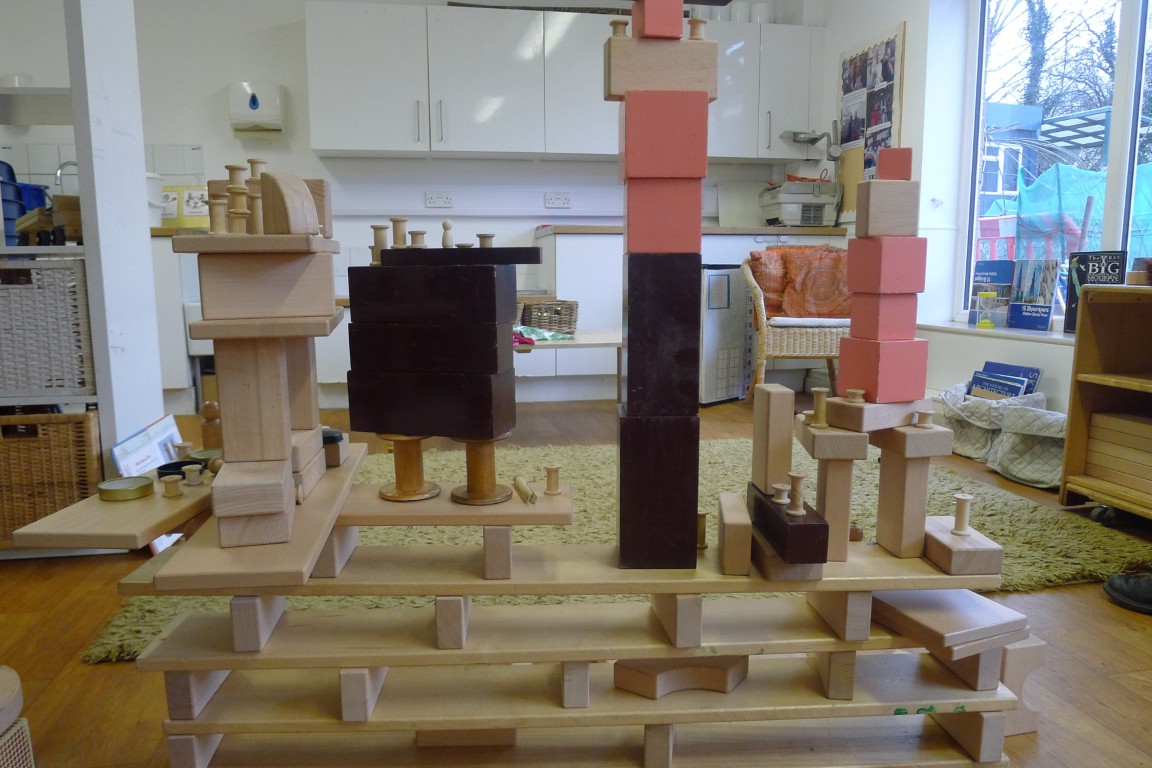
St Pauls Nursery School is conducting fascinating research into Block Play and its profound impact on early mathematical development. This innovative project focuses specifically on how block play nurtures children’s understanding of pattern and symmetry, which are fundamental mathematical concepts.
Working in collaboration with Michael from Bristol University, the teaching team is deepening their knowledge of early mathematics education. The research has revealed that blocks seem to possess their own unique “language” that makes mathematical concepts tangible for young learners. Through hands-on exploration and play, children’s mathematical understanding becomes “concrete” rather than abstract.
The research project examines four key questions:
- What specific learning can we observe during Block Play sessions?
- What subject knowledge do educators need to effectively support Early Mathematics through Block Play?
- What is the optimal role for adults in facilitating this learning?
- How can we best document children’s learning and reflect it back to them meaningfully?
The team has observed that children return to Block Play activities with remarkable concentration and problem-solving determination. Over time, their block constructions have evolved to demonstrate increasingly complex patterns, symmetry, and spatial transformations – all critical components of mathematical thinking.
This research highlights St Pauls Nursery School’s commitment to evidence-based early childhood education that recognises the power of play in developing essential mathematical foundations.
Take a look at this incredible MagiScan of one of the creations.

